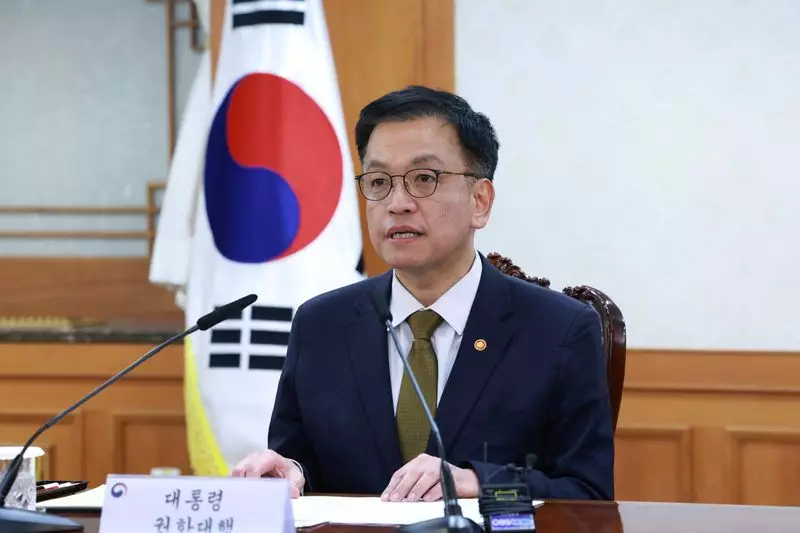Recent months have been tumultuous for South Korea, culminating in a political crisis following the impeachment of President Yoon Suk Yeol. The situation has triggered deep uncertainty, affecting not only the political landscape but also the economic and social domains of the country. The acting president, Choi Sang-mok, whose prior role as finance minister now encompasses an extensive portfolio, faces the arduous task of steering the nation through unprecedented turbulence. The implosion of the current political framework raises questions about stability and the future direction of South Korean governance.
Choi, who stepped into the role of acting president following the removal of Prime Minister Han Duck-soo, is not merely a stopgap measure but rather a pivotal figure in this crisis. His nearly simultaneous responsibilities span the roles of acting president, acting prime minister, deputy prime minister for economic affairs, and finance minister. Additionally, he leads the ministerial central disaster control team, recently formed in response to a catastrophic plane crash that claimed 179 lives. This overwhelming array of duties puts immense pressure on him, demanding adept leadership and strategic foresight to unify the divided landscape of South Korean politics.
In his New Year’s address, Choi called upon citizens, political opponents, and business leaders to foster trust and cooperation. In these fractured times, the emphasis on national harmony is vital; it underscores the need for dialogue across party lines and with societal leaders. The acting president’s commitment to communicating with diverse political factions demonstrates a recognition that collaborative governance is essential for addressing the challenges ahead. Such an effort could prove pivotal in alleviating concerns over political instability and rallying support for government initiatives.
Choi asserted that South Korea’s alliance with the United States would remain steadfast, particularly as the nation braces itself for potential shifts in foreign policy under the incoming Trump administration. The assurance of a robust defense and diplomatic stance is crucial as geopolitical tensions loom large. Worse still, the interdependencies of global trade in a rapidly-changing world underscore the need for adaptive economic strategies. Choi’s assertion that the government would implement timely support measures for small businesses and the self-employed reflects an understanding of the economic repercussions of political turbulence and an attempt to mitigate economic downturns.
The road ahead for South Korea remains uncertain, fraught with the complexities of political division and external pressures. However, Choi Sang-mok’s New Year’s address outlines a framework for resilience. By advocating for trust, stability, and a collaborative approach, he sets a hopeful tone for a nation in need of unity. Success will depend not only on government initiatives but also on the collective will of the people to transcend political differences and support the nation’s recovery and future growth. As South Korea embarks on this new chapter, the commitment to national harmony will indeed be tested, but it holds the promise of a unified future.

